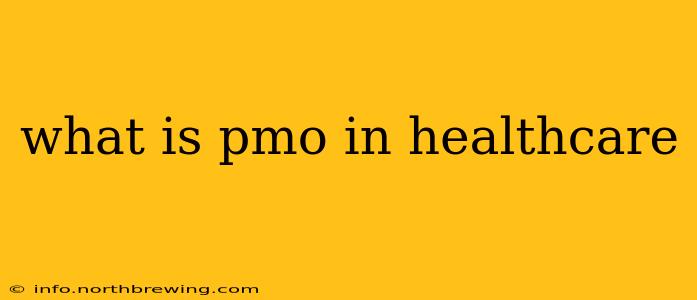In the dynamic world of healthcare, juggling numerous projects—from implementing new electronic health record (EHR) systems to launching groundbreaking clinical trials—requires a highly organized and efficient approach. This is where the Project Management Office (PMO) steps in. But what exactly is a PMO in healthcare, and why is it so crucial?
A healthcare PMO is a centralized unit responsible for overseeing, managing, and standardizing project management processes across an entire healthcare organization. It acts as a strategic partner, driving efficiency, improving outcomes, and ensuring projects align with the overall organizational goals. Think of it as the conductor of an orchestra, harmonizing the efforts of diverse teams to achieve a shared vision.
What Does a Healthcare PMO Do?
The responsibilities of a healthcare PMO are multifaceted and can be tailored to the specific needs of the organization. However, some core functions consistently emerge:
- Developing and implementing project management methodologies: This includes establishing standardized processes, templates, and tools for project planning, execution, monitoring, and closure. Consistency is key for successful project delivery.
- Providing training and support: The PMO equips project managers and teams with the necessary skills and resources to effectively manage their projects. This fosters a culture of project management excellence.
- Managing project portfolios: The PMO gains a holistic view of all ongoing and planned projects, identifying dependencies, risks, and opportunities for optimization. This ensures strategic alignment and resource allocation.
- Tracking and reporting project progress: Regular reporting keeps stakeholders informed about project status, potential issues, and performance against targets. Transparency is vital for successful project governance.
- Identifying and mitigating risks: Proactive risk management is crucial in healthcare. The PMO helps identify potential roadblocks and develops strategies to minimize their impact.
- Improving project efficiency and effectiveness: The PMO constantly seeks ways to enhance project delivery, often through process improvements, technology adoption, and best-practice sharing.
- Ensuring compliance with regulations: Healthcare is a highly regulated industry. The PMO plays a crucial role in ensuring projects adhere to all relevant legal and ethical standards.
Why is a Healthcare PMO Important?
In today's complex healthcare landscape, a well-functioning PMO offers significant advantages:
- Improved project success rates: Standardized processes and skilled project managers enhance the likelihood of delivering projects on time and within budget.
- Reduced costs and increased efficiency: Optimized resource allocation and streamlined processes minimize waste and improve overall efficiency.
- Enhanced communication and collaboration: The PMO facilitates communication and collaboration among various stakeholders, fostering a shared understanding and collective effort.
- Better risk management: Proactive risk identification and mitigation strategies minimize the impact of unforeseen challenges.
- Increased organizational agility: A PMO enables organizations to respond more effectively to changing market demands and evolving patient needs.
- Improved patient care: Ultimately, successful projects lead to improvements in patient care, safety, and outcomes.
What are the Different Types of Healthcare PMOs?
Healthcare PMOs can take various forms depending on their scope and responsibilities:
- Supportive PMO: This type focuses on providing guidance, tools, and training to project managers, leaving the actual project execution to individual teams.
- Directive PMO: A directive PMO takes a more active role, directly managing projects and enforcing standardized methodologies.
- Controlling PMO: This type has the most extensive authority, actively managing and controlling all aspects of projects, including resource allocation and budget management.
How Can a Healthcare PMO Improve ROI?
A PMO doesn't just manage projects; it helps maximize return on investment (ROI). By streamlining processes, reducing costs, and improving the success rate of projects, a PMO contributes directly to the financial health of the organization. This can manifest in improved operational efficiency, increased revenue, and reduced expenditure on project failures.
What are the Challenges Faced by Healthcare PMOs?
While highly beneficial, healthcare PMOs often face challenges:
- Resistance to change: Implementing new processes and tools can meet resistance from teams accustomed to traditional methods.
- Lack of resources: Adequate funding, skilled personnel, and appropriate technology are crucial for PMO success.
- Data management: Healthcare data is complex and sensitive. Managing project data effectively requires robust systems and expertise.
- Regulatory compliance: Navigating the complexities of healthcare regulations requires specialized knowledge and careful planning.
Successfully navigating these challenges requires strong leadership, effective communication, and a commitment to continuous improvement.
In conclusion, a PMO is not simply an add-on but a critical component for success in the modern healthcare environment. By fostering efficiency, collaboration, and strategic alignment, a well-structured PMO empowers healthcare organizations to achieve their goals, improve patient outcomes, and thrive in a dynamic industry.
